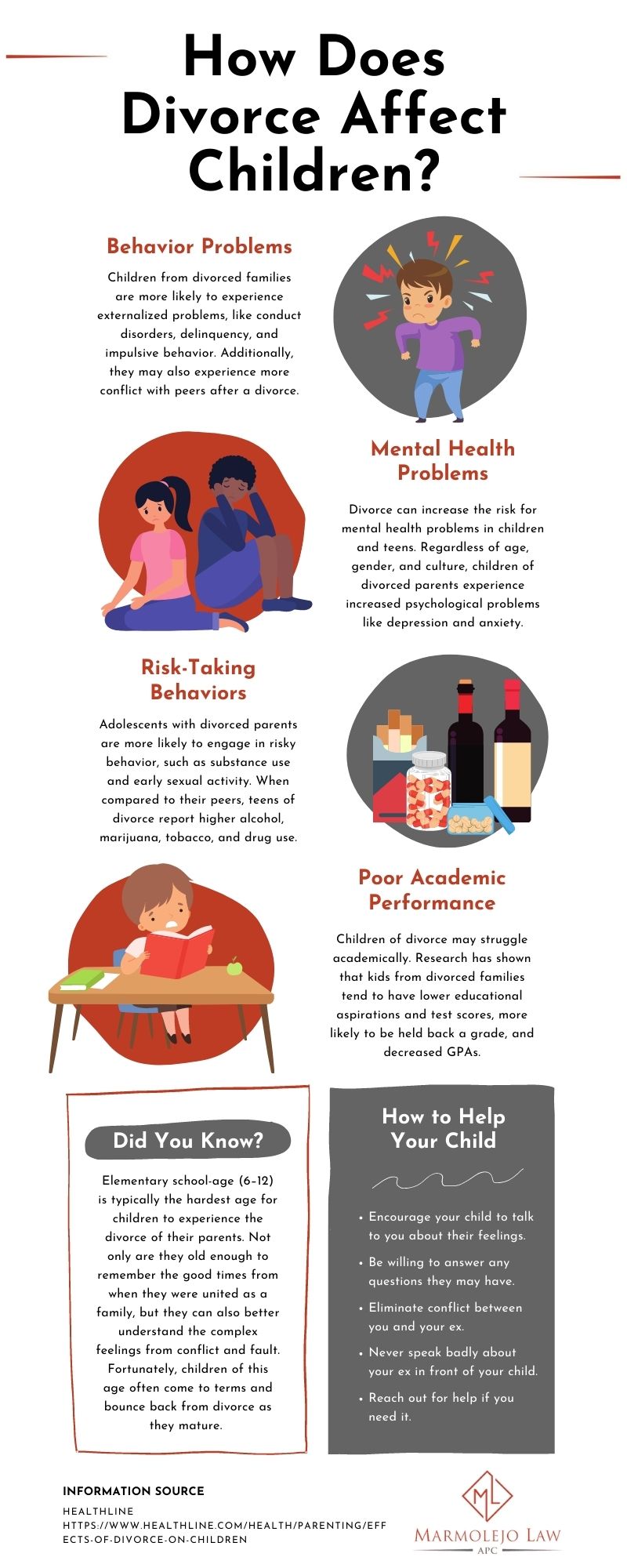
Mental Health Problems
Divorce can increase the risk of mental health problems in children and teens. Regardless of age, gender, and culture, children of divorced parents experience increased psychological problems like depression and anxiety.
Behavior Problems
Children from divorced families are more likely to experience externalized problems, like conduct disorders, delinquency, and impulsive behavior. Additionally, they may also experience more conflict with peers after a divorce.
Poor Academic Performance
Children of divorce may struggle academically. Research has shown that kids from divorced families have lower educational aspirations and test scores, are more likely to be held back a grade, and have decreased GPAs.
Risk-Taking Behaviors
Adolescents with divorced parents are likelier to engage in risky behavior, such as substance use and early sexual activity. Compared to their peers, divorced teens report higher alcohol, marijuana, tobacco, and drug use.
Did You Know?
Elementary school age (6–12) is typically the most challenging age for children to experience the divorce of their parents. Not only are they old enough to remember the good times from when they were united as a family, but they can also better understand the complex feelings of conflict and fault. Fortunately, children of this age often come to terms and bounce back from divorce as they mature.
How to Help Your Child
- Encourage your child to talk to you about their feelings.
- Be willing to answer any questions they may have.
- Eliminate conflict between you and your ex.
- Never speak badly about your ex in front of your child.
- Reach out for help if you need it.
